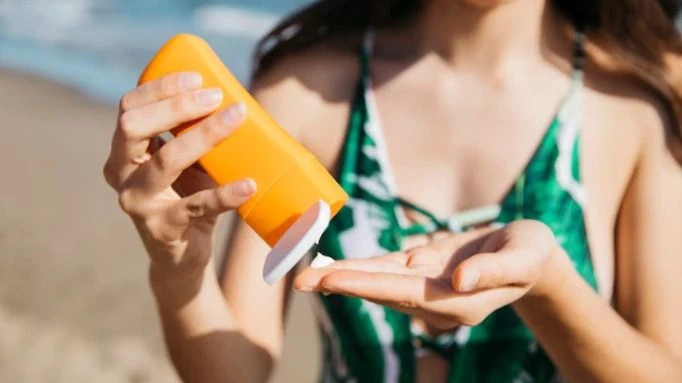Sunscreen has been a hot topic for a while now, and not just because it’s the summertime staple. However, many myths and misconceptions surrounding it about its effectiveness, usage and many more have surfaced time and again.
The basic use of sunscreen is to protect the skin surface from tanning with more acclamations suggests it also protects from wrinkles, premature ageing, and sunburn. Essentially it should not be skipped and use daily with rounds of 4 hours. But if sunscreen protects your skin from the sun, is it necessary to use it when the sun goes down during the monsoons?
You should use sunscreen during monsoons or not?
The monsoon has arrived, bringing with the cloudy skies. Many people mistakenly skip sunscreen during this season, thinking that cloudy weather means they’re safe. However, UV radiation from the sun continues to reach the earth and can still cause damage.
Skincare experts and dermatologists emphasise the importance of using sunscreen every single day of the year. Cloud cover does not block UV rays, and in fact, it can sometimes amplify their effects. Applying sunscreen during the monsoon is essential to safeguard your skin from sun damage.
No matter the season, sunscreen remains a crucial part of your daily routine. Whether it’s winter or rainy weather, sun damage can occur regardless of the weather. Even in heavy rain, UV rays can penetrate through water, causing skin burns and tanning. To enjoy the rain while protecting your skin, ensure you apply sunscreen regularly.
Choosing the right sunscreen for your skin type during a changing atmosphere
As time and weather change, so does our skin. Just as we adjust our diets with the seasons, our skin also requires seasonal care and adjustments. In the winter season, our skin tends to become excessively dry, while in summer, it may shift to a combination or oily type due to humidity. Thus, it’s important to alter the skincare products we use accordingly. Selecting the right products is crucial, and sunscreen is a key component that must be chosen carefully to avoid adverse effects.
For oily to combination skin during summer and monsoon, opt for an oil-free, non-comedogenic sunscreen lotion. For dry skin, choose a hydrating and moisturizing sunscreen cream. Additionally, ensure the sunscreen has a high SPF of at least 30 to offer sufficient protection from UV rays. Since everyone’s skin adapts differently over time, finding the right sunscreen for individual needs is essential.


